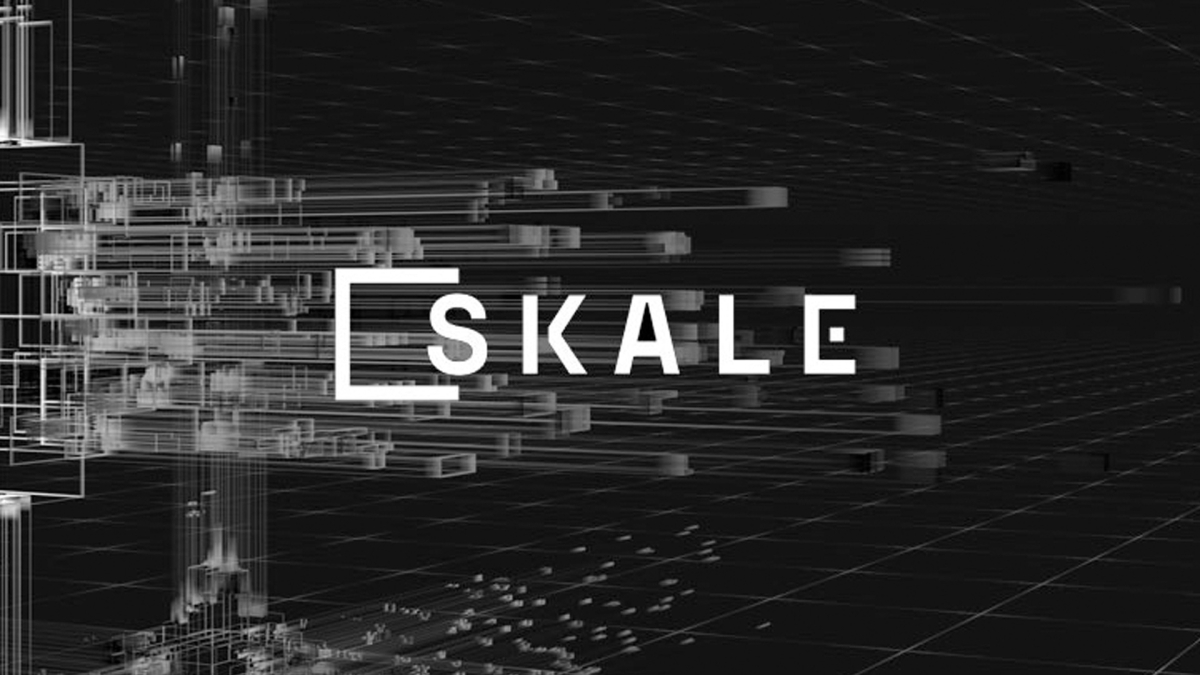In recent years, artificial intelligence has moved beyond experimental stages and entered real-world deployment across industries ranging from finance to healthcare and entertainment. The ability to train and deploy AI models efficiently has become a cornerstone of innovation. As demands for faster, smarter, and more scalable AI systems grow, new platforms and infrastructures are emerging to meet the challenge. One such platform that is gaining significant attention is SKALE AI. Designed to empower decentralized AI solutions, SKALE AI introduces a new paradigm in how models are trained and deployed across networks.
This article explores the transformative impact of SKALE AI on model training and deployment. We will examine how it addresses current challenges in the AI lifecycle and the advantages it offers to researchers, developers, and enterprises seeking scalable and decentralized intelligence.
The Challenges in AI Model Training and Deployment
AI development involves two major phases: training and deployment. While these might seem sequential, they each come with distinct technical and resource-related challenges:
-
Data Access and Privacy: Training models require massive datasets, often centralized in data silos. Privacy laws such as GDPR and HIPAA restrict cross-border or uncontrolled data sharing.
-
Computational Bottlenecks: High-performance computing power is needed to train models, which can be prohibitively expensive or limited to a few well-funded organizations.
-
Deployment at Scale: Once trained, models must be deployed in environments that support low latency, adaptability, and high throughput—especially in real-time applications.
-
Model Versioning and Governance: Ensuring consistency between training environments and production deployment often requires strict version control, traceability, and access governance.
-
Decentralized Infrastructure: As Web3 applications grow, traditional centralized AI platforms are ill-equipped to serve decentralized use cases that require distributed logic and learning.
These challenges call for an infrastructure that is not only efficient and scalable but also secure and privacy-preserving. This is where SKALE AI is proving its worth.
What is SKALE AI?
SKALE AI is a part of the broader SKALE Network, a blockchain platform known for its focus on scalability and zero gas fees. It builds upon the SKALE ecosystem’s infrastructure to offer AI-specific capabilities that blend blockchain principles with cutting-edge machine learning.
The platform offers decentralized computing power, distributed data storage, and built-in privacy mechanisms, all optimized for training and deploying AI models in a Web3-compatible manner. Rather than relying on centralized data centers or proprietary cloud services, SKALE AI enables AI model execution across a distributed network of nodes.

Key Innovations Introduced by SKALE AI
1. Federated and Collaborative Training
One of the most promising features of SKALE AI is its support for federated learning. In traditional training, datasets are aggregated in a central location, posing privacy and security risks. SKALE AI allows model training to occur directly on decentralized nodes where the data resides, avoiding the need to transfer sensitive information.
This distributed approach also facilitates collaborative learning. Multiple data owners can participate in the training of a single model without exposing their proprietary data. The model is updated in a secure and privacy-preserving manner, using techniques such as differential privacy and secure multiparty computation (SMPC).
2. On-Chain Model Provenance
SKALE AI leverages blockchain for model version control and traceability. Every training event, model update, and deployment can be logged immutably on-chain. This ensures a verifiable lineage of the model—from data sources and training iterations to final deployment—providing transparency and accountability.
This is particularly useful in regulated sectors like finance and healthcare, where audit trails are essential. Organizations can demonstrate compliance with data governance policies and ensure that only authorized model versions are used in production.
3. Incentivized Compute Power
Training AI models is resource-intensive, and many developers struggle to access affordable GPU resources. SKALE AI introduces a marketplace model where node operators can offer their computing resources to support training tasks. These operators are incentivized via token rewards, creating a decentralized compute network.
This opens up AI development to a broader pool of innovators who might not have access to traditional cloud services. It also democratizes the AI economy by allowing individuals and small organizations to contribute and benefit from the ecosystem.
4. Gas-Free Smart Contracts for AI Logic
AI logic often involves frequent read/write operations and real-time decision-making, making it difficult to implement on conventional blockchains due to high gas costs. SKALE AI eliminates this barrier with gas-free smart contracts that allow seamless execution of AI logic on-chain.
These contracts can host lightweight models or trigger inference from off-chain models in response to real-time data streams. The result is a scalable environment where AI can be integrated into decentralized applications (dApps) with minimal friction.
5. Decentralized Data Marketplaces
Another innovative aspect of SKALE AI is its support for decentralized data marketplaces. These platforms allow data owners to monetize their datasets while retaining ownership and control. AI developers can access high-quality, labeled datasets for model training in a permissioned manner.
This not only solves the data scarcity problem but also fosters a healthier data economy. Contributors are rewarded fairly, and data access becomes more equitable.
Real-World Applications and Case Studies
The capabilities of SKALE AI are not just theoretical. Real-world applications are already being explored and implemented across industries.
Healthcare
In healthcare, SKALE AI is enabling privacy-preserving training of diagnostic models. Hospitals in different regions can collaboratively train models on medical imaging data without transferring any patient records. The federated approach ensures HIPAA compliance while benefiting from a more comprehensive dataset.
Finance
Fraud detection models in decentralized finance (DeFi) applications can be trained using transaction data across multiple platforms. SKALE AI’s ability to execute inference in real time ensures that suspicious activity can be flagged instantly, reducing risk and increasing user trust.
Supply Chain and Logistics
SKALE AI enables predictive models that forecast supply chain bottlenecks by aggregating decentralized logistics data. Smart contracts can automate responses—such as rerouting deliveries or adjusting inventory—based on real-time predictions.
Web3 Gaming
Game developers can deploy adaptive AI that learns from player behavior to improve NPC (non-playable character) intelligence and personalize gameplay. With gas-free contracts and low-latency inference, SKALE AI makes intelligent gaming in Web3 possible.
Benefits to Developers and Enterprises
-
Cost Efficiency: No gas fees and incentivized compute make AI development more affordable.
-
Privacy and Compliance: On-node training and on-chain provenance enable secure and auditable workflows.
-
Scalability: Distributed training and inference allow models to serve global applications with low latency.
-
Interoperability: Compatible with existing Web3 tools, SKALE AI fits easily into dApp and DeFi ecosystems.
-
Transparency: Immutable logs and open data models increase trust among users, developers, and stakeholders.
Limitations and Considerations
Despite its promise, SKALE AI is not without its challenges. For one, decentralized model training is still a relatively new concept, and tools for debugging, optimizing, and benchmarking may not yet match those of centralized environments. Network latency, node reliability, and security remain technical hurdles to be solved at scale.
Moreover, adopting SKALE AI may require a mindset shift from traditional AI developers. Familiarity with blockchain, token economies, and smart contracts becomes necessary. This learning curve could limit adoption in the short term but may be mitigated through education and community support.
The Future of Decentralized AI
SKALE AI is part of a larger movement toward decentralization in artificial intelligence. As the internet evolves into Web3, the need for AI systems that are secure, privacy-preserving, and community-driven becomes paramount. By addressing the core bottlenecks in model training and deployment, SKALE AI paves the way for a more inclusive and resilient AI ecosystem.
We can expect to see further integrations with decentralized identity (DID) systems, cross-chain interoperability, and enhanced privacy protocols like homomorphic encryption. These advancements will solidify SKALE AI’s role in powering the next generation of intelligent decentralized applications.
Conclusion
The evolution of artificial intelligence requires platforms that are as dynamic and scalable as the models they host. SKALE AI represents a significant step forward by providing a decentralized infrastructure for training and deploying AI models. Its blend of federated learning, blockchain-based governance, and zero-cost smart contracts offers a powerful alternative to traditional cloud-based solutions.
As developers and enterprises explore the capabilities of this platform, SKALE AI is poised to become a cornerstone of decentralized intelligence in the Web3 era.
